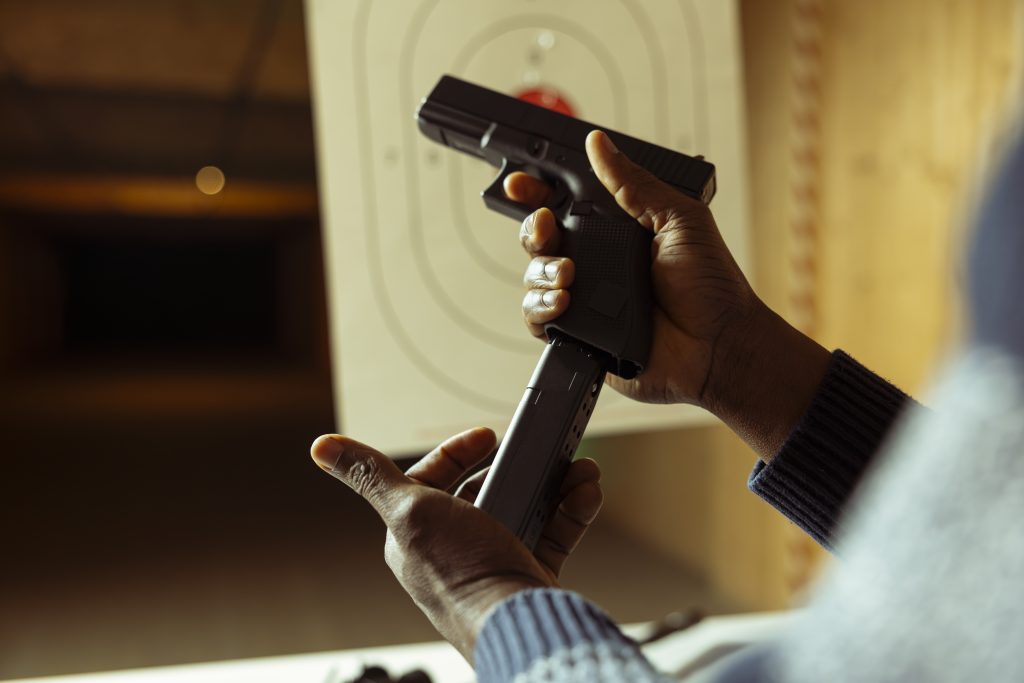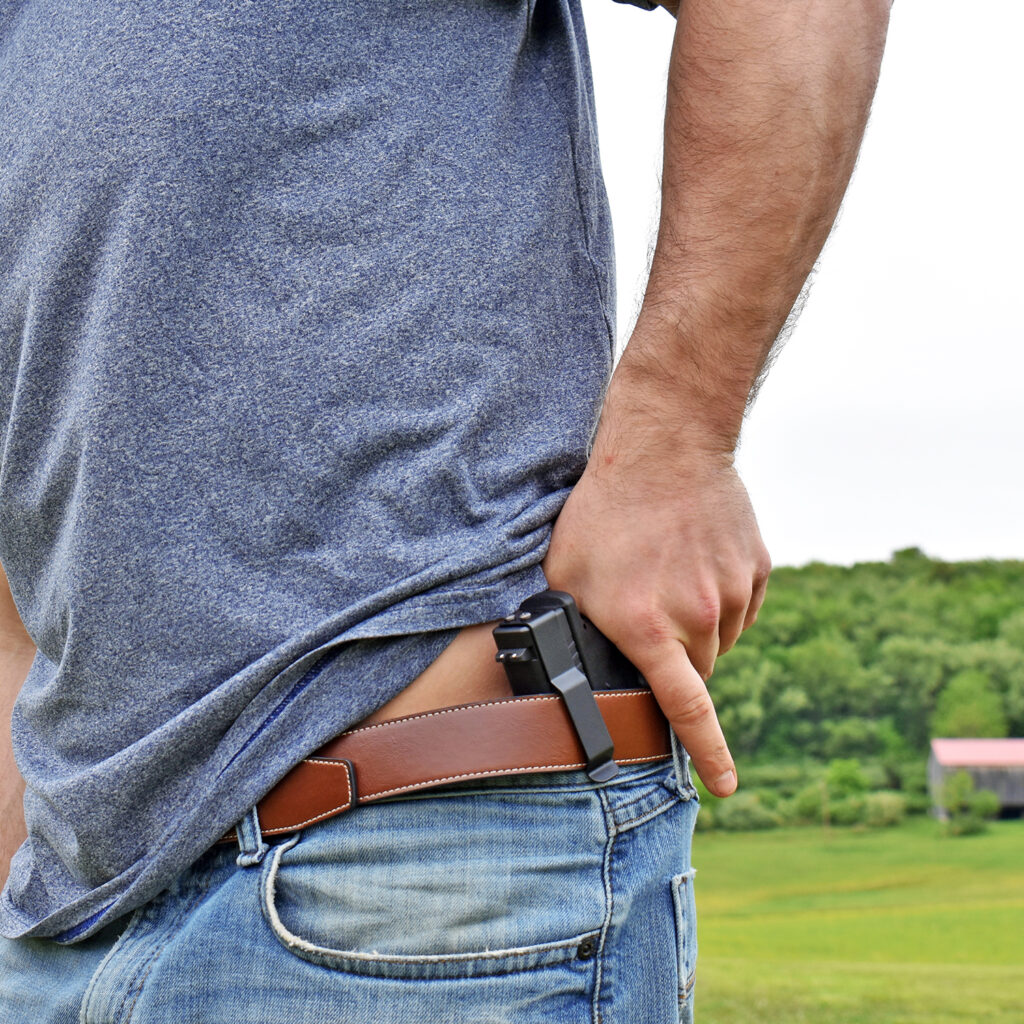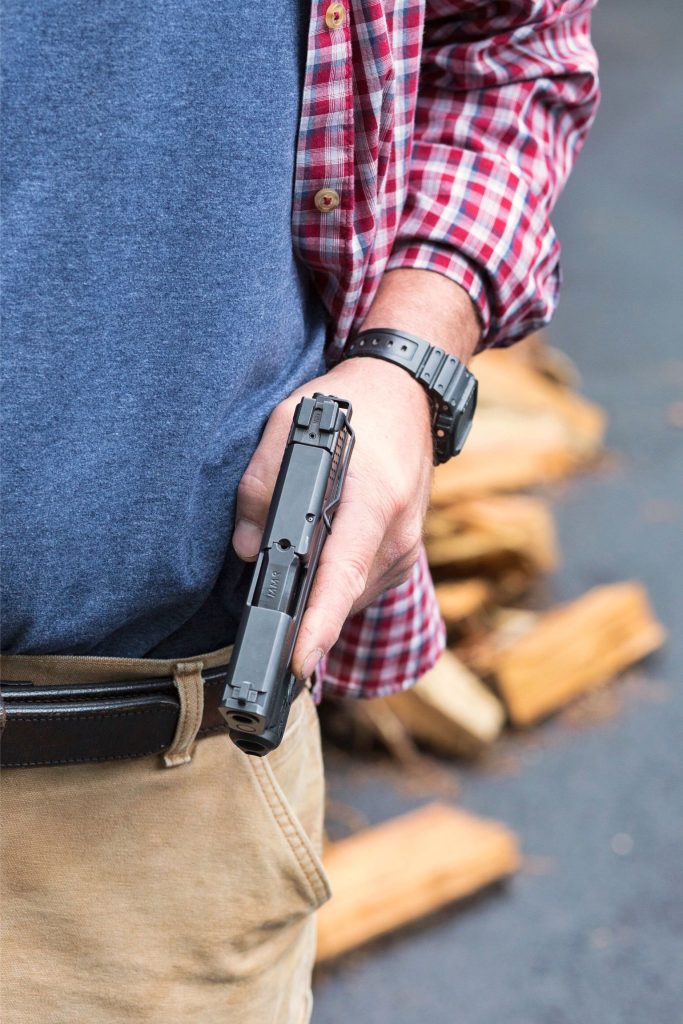This information is only to be used as a general guide. Laws are updated constantly, and this should not be used as a legal reference. Please consult a legal source or representative for the most up-to-date information regarding concealed carry laws in your state.
Summary of Florida Concealed Carry Laws
Florida is known as a “Shall Issue” state for concealed carry. This means that the Department of Agriculture and Consumer Services must issue a Concealed Weapon License if the applicant meets all the legal requirements.
The state’s concealed carry laws permit anyone 21 years or older, a U.S. citizen or legal resident, and meets certain other criteria, to carry a concealed weapon or firearm. However, some key restrictions and requirements need to be met.
Here are some of the key features of Florida’s concealed carry laws:
Permit Requirements: Applicants must be at least 21 years old, demonstrate competence with a firearm, and meet other eligibility requirements.
Training Requirement: Florida law mandates a certain level of firearm safety training. This typically includes a firearm safety course from a certified instructor.
Reciprocity: Florida recognizes concealed carry permits from all other U.S. states as long as the person is not a resident of Florida and is at least 21 years old. However, Floridian residents must have a Florida permit.
Restricted Areas: Certain places, such as schools, professional sports events, and establishments that serve alcohol, are off-limits for concealed carry.
‘Stand Your Ground’ Law: Florida has a “Stand Your Ground” law, meaning there is no duty to retreat if you feel threatened or believe you are in imminent danger of death or great bodily harm.
Open Carry: Generally, open carry is not permitted in Florida except for a few specific exceptions.
This is a basic summary of Florida’s concealed carry laws. The next sections will delve into these points in more detail, as well as cover additional considerations such as renewal procedures, processes for obtaining a permit, and penalties for violations of concealed carry laws.
Carry Basics
In this section, we explore specific facets of Florida’s gun laws, addressing questions around what kinds of weapons you can carry concealed, where you can carry, and who can carry.
Weapons Other Than Handguns Allowed:
Under a Florida Concealed Weapons License, you can legally carry concealed weapons other than handguns. This includes electronic weapons or devices, tear gas guns, knives, and billie clubs. A key exception to this rule are items that are classified as destructive devices, such as bombs, grenades, and other explosive materials, which are illegal to carry, concealed or otherwise.
However, it’s worth noting that although the law permits the concealed carry of weapons other than handguns, the individual circumstances may influence the lawfulness of carrying a particular weapon. Therefore, you should always consult with a legal professional to ensure you’re in compliance with the law.
Automatic Weapons & Suppressors:
Ownership of automatic weapons and suppressors is allowed in Florida, but these items must be registered in accordance with federal laws. The National Firearms Act (NFA) governs these weapons at the federal level, and Florida state law does not restrict them further.
Magazine Capacity Limitations:
As of the time of writing, Florida does not have a law restricting the capacity of magazines for any firearm. However, gun owners should always check the most current state and local laws to ensure compliance.
Ammunition Restrictions:
Florida does not have any laws prohibiting specific types of ammunition. However, federal laws do apply, such as restrictions on armor-piercing ammunition.
Carrying Firearms in Vehicles:
In Florida, a person 18 years of age or older can legally possess a concealed firearm or other weapon for self-defense or other lawful purposes within the interior of a private vehicle, without needing a license, if the firearm or other weapon is securely encased or is otherwise not readily accessible for immediate use.
As always, this information can change, and it’s important to consult the most recent laws or a legal professional for the most current and accurate information.
Carry Locations
This section delves into the specifics of where you can and cannot carry concealed firearms in Florida. We’ll address places like bars, restaurants, schools, and government buildings.
Carry in Bars/Restaurants That Serve Alcohol:
In Florida, you are not allowed to carry a concealed firearm into a bar or any other establishment licensed to dispense alcoholic beverages for consumption on the premises, which portion of the establishment is primarily devoted to such purpose. While you cannot carry in areas primarily devoted to the dispensing of alcohol, carrying in a restaurant that serves alcohol is generally permitted, as long as you do not enter any area primarily devoted to the dispensing of alcoholic beverages. It’s always recommended to look for any posted signs or consult with management.
Carry at Schools:
In general, Florida law prohibits the possession of firearms on the property of any school, school bus, or school bus stop. However, a concealed carry permit does not authorize any person to openly carry a handgun or carry a concealed weapon or firearm into any school or college.
Carry in Government Buildings:
Carrying a concealed firearm is generally prohibited in any police, sheriff, or highway patrol station, detention facility, prison, or jail, any courthouse or courtroom, any polling place, any meeting of the Legislature or a committee thereof, and any school, college, or professional athletic event not related to firearms.
Carry in State/National Parks, State/National Forests, and Wildlife Management Areas:
Florida law allows concealed carry in state parks, state and national forests, and Wildlife Management Areas. However, rules may vary, so it’s essential to verify specific park rules before visiting.
Carry in Private Property:
Property owners in Florida have the right to determine whether to allow firearms on their private property. If private property owners or occupants have posted signage that prohibits firearms, or if they verbally inform you that guns are not allowed, you must comply with their wishes.
Carry in Places of Worship:
Places of worship in Florida are not automatically off-limits for carrying concealed firearms. However, it is up to each individual place of worship to set its policy, which must be adhered to.
Please note that while this guide provides an overview of general rules, exceptions may exist, and laws can change. Always verify current state and local laws and restrictions before carrying a concealed firearm.
Key State Laws
In this section, we will take a closer look at some of Florida’s specific state laws pertaining to concealed carry, including non-resident permitting and public access to concealed carry registry.
Non-Resident Permitting:
Florida issues concealed carry licenses to non-residents. However, there are specific requirements that must be met. Non-residents must be a U.S. citizen or a permanent resident alien with valid documentation. Additionally, non-residents must meet all the eligibility requirements that apply to residents, such as being at least 21 years old, not having a felony conviction, and demonstrating competency with a firearm.
Public Access to Concealed Carry Registry:
Florida law prohibits the public from accessing concealed carry registry information. The names and identifying information of individuals who have applied for or received a concealed carry license are considered confidential and exempt from public record laws.
‘Stand Your Ground’ Law:
Florida has a “Stand Your Ground” law in place. This means that if you are in a place where you have a right to be, you do not have a duty to retreat before using force, even deadly force, if you reasonably believe it is necessary to prevent injury or death to yourself or others, or to prevent a forcible felony. This law applies whether you are in your home, in your car, or in public places.
Duty to Inform Law Enforcement:
Florida does not have a law requiring concealed carry permit holders to notify law enforcement that they are carrying a concealed weapon during a traffic stop or other encounters. However, if a law enforcement officer asks if you are carrying a weapon, you should answer truthfully.
Handgun Purchase & Possession
This section sheds light on specific aspects of handgun purchase and possession in Florida, including the rights of property owners and the implications of having a Florida concealed carry license.
Possess a Handgun on My Private Property Without a License:
In Florida, you can legally possess a handgun in your home without a concealed carry license. This includes your home and its immediate premises (e.g., your yard, your private garage), your private office, or inside your motor vehicle, even if the firearm is temporarily exposed to sight or view.
Purchase and Background Checks:
To purchase a firearm in Florida, you must be at least 18 years old for long guns and at least 21 for handguns. All firearm sales via a Federal Firearms Licensed dealer (FFL), including private sales conducted through an FFL, require a background check.
Florida License Exempts from Background Check:
If you have a current Florida concealed carry license, it does exempt you from the need for a further background check when purchasing a firearm from a licensed dealer. The rationale behind this is that a background check was conducted when you applied for your concealed carry license.
Waiting Periods:
Florida has a mandatory waiting period for handgun purchases. The purchaser must wait either three days, excluding weekends and legal holidays, or the time it takes to complete the required criminal background check – whichever occurs later. However, this waiting period can be waived for a concealed carry license holder or in case of a trade-in of another firearm.
Purchase Permits:
As of the time of writing, Florida does not require a permit to purchase a handgun.
In conclusion, we have covered a broad range of topics related to concealed carry laws in Florida, from a general summary of the laws to more specific aspects like carrying firearms in different locations, key state laws, and guidelines around handgun purchase and possession.
Florida is a “Shall Issue” state that permits concealed carry with the appropriate license, and its laws are relatively permissive compared to other states. However, understanding the specifics is crucial for law-abiding gun owners.
Key points to remember include the prohibition of firearms in places like bars, schools, and government buildings, the protection offered by the “Stand Your Ground” law, and the specific rules around firearm purchase and possession.
Despite the comprehensive nature of this guide, it’s essential to remember that gun laws frequently change, sometimes with little notice. As a responsible gun owner, it’s your duty to stay updated on these changes to ensure you’re always in compliance. Regularly checking for updates from official sources, like the Florida Department of Agriculture and Consumer Services, is highly recommended.
Also, remember that while this guide aims to provide valuable information, it doesn’t constitute legal advice. Always consult with a legal professional or trusted authority for specific inquiries or legal advice.
Being knowledgeable about your rights and responsibilities as a gun owner in Florida not only helps you avoid legal trouble but also ensures you can exercise your rights confidently and responsibly.
STATE CONSTITUTIONAL PROVISION
(a) The right of the people to keep and bear arms in defense of themselves and of the lawful authority of the state shall not be infringed, except that the manner of bearing arms may be regulated by law. (b) There shall be a mandatory period of three days, excluding weekends and legal holidays, between the purchase and delivery at retail of any handgun. For the purposes of this section, ‘purchase’ means the transfer of money or other valuable consideration to the retailer, and ‘handgun’ means a firearm capable of being carried and used by one hand, such as a pistol or revolver. Holders of a concealed weapon permit as prescribed in Florida law shall not be subject to the provisions of this paragraph. (c) . . . anyone violating the provisions of subsection (b) shall be guilty of a felony. (d) This restriction shall not apply to a trade in of another handgun. The legislature of the State of Florida, in a declaration of policy incorporated in its “Weapons and Firearms” statute, recognizes that adult citizens of the state retain their constitutional right to keep and bear firearms for hunting and sporting activities and for defense of self, family, home and business and as collectibles.” ARTICLE 1, § 8


